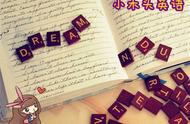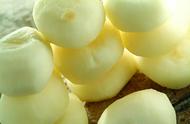Unit 5 What are the shirts made of?
一、短语:
1. everyday things 日常用品 2. be made in 在……制造
3. environmental protection 环境保护 4. be famous for 以……而著名
5. be produced in 在……生产 6. be known for 以……闻名
7. as far as I know 据我所知 8. pick by hand 手工采摘
9. send for 发送 10. avoid doing sth 避免做某事
二、知识点:
1. made of:由……制(构)成,后接构成某物质的原料。
例:This skirt is made of silk. 这件裙子是用丝绸制成的。
be made of/from/up of的区别:
(1)be made of 表示制成成品后,仍可看出原材料是什么。保留原材料的质和形状,制作过程仅发生物理变化。
例:The kite is made of paper.风筝是用纸做的。
(2)be made from 表示制成的东西完全失去了原材料的外形或特征,或原材料在制作过程中发生化学变化,在成品中已无法辨认。
例:The paper is made from wood.纸是木头做的。
Butter is made from milk.黄油是从牛奶中提炼出来的。
(3)be made up of表示用……构成或组成的,指人、物皆可,指结构成分。
例:Our class is made up of six groups. 我们班是由六个小组组成的。
2. No matter what you may buy, you might think those products were made in those countries.
无论你买什么,你都可能认为那些产品是在那些国家生产的。
此句为由no matter 特殊疑问词引导的让步状语从句。意为“无论….”,相当于whatever。
例:No matter what I said to her, she still didn’t believe me.
无论我对她说什么,她仍然不相信我。
3.语态:在英语语言中,语态主要讨论句子主语与行为动词的关系。语态有两种:主动语态和被动语态。
(1)两种语态的概念:
①主语是动作的发出者(执行者)为主动语态。
如:The tall boy often hits his classmates. (主语boy是谓语动词hit的发出者)。
②主语是动作的接受者(承受者)为被动语态。汉语中常用“被”、“给”、“由”、“受”等词用来表示被动,而英语用 助动词be 及物动词的过去分词构成,如:Chinese is spoken by the most people in the world. 中文被世界上的大多数人说(主语Chinese是谓语动词speak的接受者)。
(2) 语态与时态的关系:在任何一个英语句子中都同时存在语态时态,他们是分析一个英语句子的两个主要元素,如:
① He is looking after his sister at home. 他正在家照顾他的妹妹。
② He is being looked after well by his parents. 他被他的父母照顾得很好。
说明:我们以前所学的各种时态的结构其实都时主动语态的各种时态结构。
(3)被动语态最基本的句型结构: be 及物动词过去分词
说明:①be 有时态,人称和数的变化。
②被动语态中的谓语动词必须是及物动词;因为被动句中的主语是动作的承受者,某些短语动词如look after, think of, take care of, work out, laugh at等,也可用于被动语态。

Unit 6 When was it invented?
一、短语:
1. by accident 偶然地;意外地 2. without doubt 毫无疑问地;的确
3. by mistake 错误地;无意中 4. look up to 钦佩;仰慕
5. take place 发生;出现 6. all of a sudden 突然;猛地
7. divide…into… 把……分成 8. the Olympics 奥林匹克运动会
9. the style of ……的样式 10. since then 自从那以后
11.knock into 撞上(某人) 12.travel around 周游
13.in the sixth century 在第6世纪 14.all day 整天
15.in the way 这样 16.over an open fire 在篝火上
二、知识点:
1. invent v. 发明、inventor n. 发明家、invention n. 发明,可数名词。
2. be used for doing:用来做…(是被动语态) E.g.Pens are used for writing. 笔是用来写的。
3. fall into:落入,掉进 E.g.The leaf fell into the river. 叶子落入了河里。
fall down:摔倒 E.g.She fell down from her bike. 她从她自行车摔倒了。
4. quite:非常 adv. 与冠词a连用时,冠词a必须放在它的后面。
E.g.She is quite a beautiful girl 她是一个十分漂亮的女孩。
5.. pleased:adj. 高兴的、满意的。表示外部因素引起人发自内心的欣慰和愉快;
pleasant:adj. 令人愉快的、舒适的。指天气、时间、旅行令人高兴和愉快;
please:v. 使高兴,使同意。
6. battery-operated:adj. 电池控制的,是名词 动词的运动分词构成的合成形容词。
7. have been played:被上演,是现在完成时的被动语态,其结构为:have /has been 过去分词。
8. since then:自从那以后,常与完成时态连用。
E.g.Since then, I have left Beijing. 自从那以后,我已经离开了北京。
9. more than = over 超过(相比较,more than更重要)。
10.被动语态:
(1)被动语态表示句子的主语是谓语动词所表示的动作承受者。
(2)被动语态基本结构:be 及物动词的过去分词(如果是不及物动词,其过去分词应带有相应的介词)。
(3)被动语态中的be 是助动词,有人称、数和时态的变化。
一般现在时的被动语态为:am/is/are 过去分词;
一般过去时的被动语态为:was/were 过去分词;
与情态动词连用的被动语态:情态动词 be 过去分词
(4)被动语态中动作的发出者或执行者做介词by的宾语,放在句末,by 表示“由,被”的意思。为了更清晰、更深刻地理解被动语态的含义,可以将主动语态和被动语态的句子结构进行比较。
主动语态:主语 谓语动词 宾语 其他成分
被动语态:主语 be 过去分词 by 宾语 其他成分
E.g.Many people speak English. 许多人说英语。
E.g.English is spoken by many people. 英语被许多人说。

Unit 7 Teenagers should be allowed to choose their own clothes.
一、短语:
1. part-time jobs 兼职工作 2. a driver’s license 驾照
3. at that age 在那个年纪 4. on school nights 在上学期间的晚上
5. clean up 清扫 6. get in the way of 挡道、妨碍
7. at most 最多 8. the other day 前几天
9. all my classmates 我所有的同学 10. concentrate on 全神贯注于
11. be good for 对…有益 12. in groups 成群的,按组
13. get noisy 吵闹 14. learn from 向...学习
15. at present 目前,现在 16. have an opportunity to do 有做……的机会
二、知识点:
1. allow sb. to do sth.:允许某人做某事,如:
Mother allows me to watch TV every night. 妈妈允许我每晚看电视。
be allowed to do sth.:被允许做某事(被动语态),如:
LiLy is allowed to go to Qinzhou. 莉莉被允许去钦州。
2.get sth. done:让/使(别人)做某事,如get my ears pierced 穿(我的)耳洞。
3. enough:足够,形容词 enough,如:beautiful enough 足够漂亮。
enough 名词,如:enough food 足够食物
4.stop doing sth.:停止正在做的事,如Please stop speaking. 请停止说话。
stop to do sth.:停止一件事去做另一件事,如Please stop to speak. 请停下来说话。
5. agree 同意、赞成 反义词 disagree 不同意、反对 动词
agreement 同意、赞成 反义词 disagreement 不同意、反对 名词
6. be serious about doing:对做…认真/严肃(注意about后面用的是动名词),如:
She is serious about dancing. 她对跳舞是认真的。
be serious about sth.:对...认真,如:She is serious about him. 她对他是认真的。
7. success n.成功 succeed v.成功 successful adj.成功的 successfully adv.成功地
8. have 时间段 off :放假,休息,如:have 2 days off 放假2天。
9. both…and… 动词复数形式:...和...都...(这是一个非常重要的考点),如:
Both Jim and Li Ming play basketball. 吉姆和李明都在打篮球。

Unit 8 It must belong to Carla.
一、短语:
1. belong to属于 2. listen to classical music听古典音乐
3. go to the concert去听音乐会 4. use up 用完
5. the final exam 期末考试 6. a present for his mother 送给她妈妈的礼物
7. run for exercise 跑步锻炼 8. catch the bus 赶公交车
9. call the police 报警 10.an ocean of 极多的、用不尽的
二、知识点:
1. 情态动词must, may , might, could, may , can't表示推测含义,后面都接动词原形,都可以表示对现在情况的揣测和推断,但他们含义有所不同:
(1)must:一定,肯定(100%的可能性),如
The dictionary must be mine. 这本词典一定是我的。
(2)may, might, could:有可能,也许(20%-80%的可能性),如The CD might/could/may belong to Tony because he likes listening to pop music. 这个光盘也许属于托尼,因为他喜欢听流行乐。
(3)can't:不可能,不会(可能性几乎为零),如
The hair band can't be Bob's. 这个发带不可能是鲍勃的。
2. whose:谁的,是个疑问词,作定语,后面接名词,如:
Whose book is this? 这本书是谁的? It is Lily's. 它是莉莉的。
3. if引导的条件状语从句,主句用一般将来时,从句用一般现在时代替将来时,如
If you don't hurry up, you'll be late. 如果你不快点,你将会迟到。
4. if you have any idea= if you know:如果你知道。
5. because of:由于、因为,because of 名词/代词/名词性短语(这是一个重要的短语),如
I had to move because of my job. 因为工作的原因我得搬家。
6.neighbor:邻居,指人;neighborhood:街区、街坊,指附近的地区。
7.当形容词修饰something, anything, nothing, everything等不定代词时,放在这些词的后面(重要,切记),如something strange 奇怪的某物。
8. escape from…:从...逃跑出来(常考短语),如
He escaped from the burning building. 他从燃烧的建筑中逃出来。
9. attempt to do:试图做某事(重要考点),如
The boys attempted to leave for Beijing. 男孩子们试图去北京。
10.wake 是个动词,意思是唤醒,常用的词组:wake up 醒来、把...叫醒,如
Please wake me up at 8 o'clock. 请在8点钟叫醒我。
11. look for:寻找,强调找的过程(重要);find:找到,强调找的结果,如
I am looking for a pen. 我正在找一支笔。
I found my pen just now. 我刚刚找到了我的笔。
12.hear:听到,强调听的结果;listen:听,强调听的过程,如
Did you hear ? 你听到了吗?(指听的结果,听到或没听到)
I often listen to the music. 我经常听音乐。
13.当play指弹奏乐器时,常在乐器前用定冠词the:
play the guitar 弹吉他 play the piano 弹钢琴 play the violin 拉小提琴
当play指进行球类运动时,则不用定冠词:
play football 踢足球 play basketball 打篮球 play baseball 打棒球












